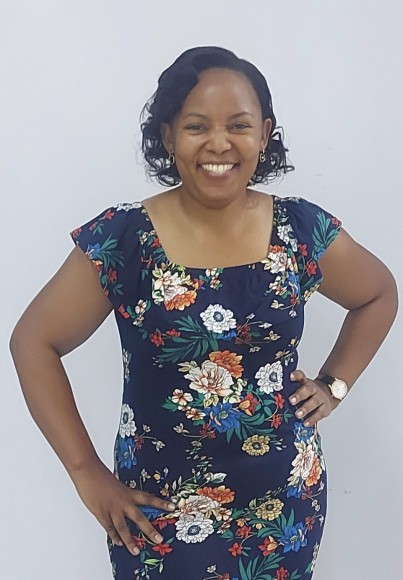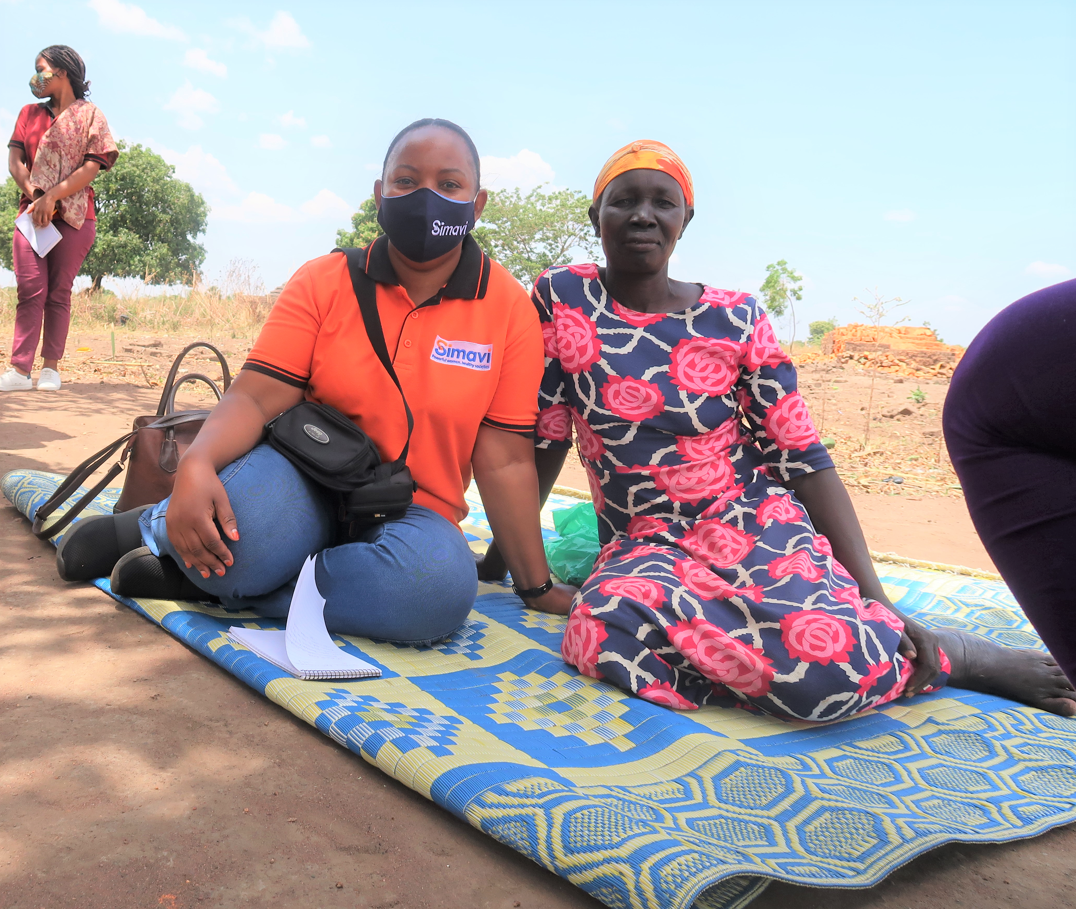I am Simavi: Hanifah Kasule: ‘It motivates women to know that their voices are heard out there.’
Programme & Communications Officer/ member of Uganda Menstrual Hygiene Management (MHM) Coalition
Text Lula Ahrens
Hanifah Kasule describes herself as a WASH practitioner and member of the Uganda Menstrual Hygiene Management (MHM) Coalition with a knack for writing stories. She has witnessed first-hand how Simavi’s work can fundamentally change the lives of the people she works with in Agago district, Northern Uganda. ‘It motivates women to know that their voices are heard out there.’

What are the main issues you tackle in Agago district?
‘Agago is a post-war area where people rely on subsistence farming. Illiteracy and poverty levels in Agago are really high, there is a lack of access to clean water and sanitation, gender-based violence is rampant and girls have children at a very young age. I can easily relate because growing up, I myself lived that kind of life.’
Please tell us more about your personal background.
‘I’m a typical countryside girl from a Muslim background where girls’ education was not strongly emphasized. As a girl, I had to walk an hour to school and back every day. Before school we used to wake up at 5am, fetch water from the well, and work in the garden to bring home food.
People used to say: ‘Hanifah, you’re not good at digging, but you perform well at school, so you’d better concentrate on that. Haha!’ That was my luck. Sometimes, the head teacher would say: ‘Even though you haven’t paid your school fees, we’ll let you sit for the exams because you make our school shine.’’
As a member of Uganda Menstrual Hygiene Management (MHM) Coalition, can you give us an example of its significance in Uganda?
'The MHM coalition [headed by the Gender Unit of the Ugandan Ministry of Education and Sports] is an alliance of different actors – government, ngo’s including Simavi and the private sector – that address and bridge gaps in MHM across the country. Let me give you an example of the MHM coalition’s significance.
During Covid-19, many village girls fell pregnant and didn’t go back to school after the lockdowns ended. The media had picked up on an increasing number of defilement cases. In other words: sexual intercourse with a minor, not necessarily without consent.
MHM then discovered that many underage girls had agreed to have sex in return for money with an older man to be able to buy menstrual pads. This underlines the importance of story collection (and distribution), as the risk of an unwanted pregnancy, or that of contracting an std, is a very high price to pay for menstrual products.'
What do Simavi and the MHM Coalition do about those defilement cases, and menstrual health in general?
'Through partner organisations that implement our programmes, we teach school children how to make reusable pads and break common myths around menstruation, hoping for a trickle-down effect into wider society.
To give you an idea: many girls and women believe that if someone sees your used pad, you may never give birth. Some religious leaders are also champions of our cause. Being educated, they don’t need much convincing.
These leaders tell everyone, including boys and men, that menstruation is a natural process fundamental to our existence and that God intended it for good. Embarrassment and secrecy around menstruation must end, because it endangers women’s health and negatively affects their daily lives.
For example, many believe that a menstruating woman is dirty and should not use the same latrine as everyone else and go in the bush instead. But it is the open defecation that contaminates sources of drinking water and spreads diseases.'
Is partner collaboration a key aspect of your work?
'Absolutely. We work with five local NGO’s, one private sector organisation and seven international NGO’s. Meetings with the above-mentioned religious leaders for instance were conducted by our local partner.
Our local partners push Simavi’s mission on the ground through the local language. They regularly assess our collaboration and sometimes take the lead in drafting proposals.'
What stories will always stay with you?
‘That of widow and WASH (Water, Sanitation and Hygiene) champion Josephine Akul (photo), the first female village council chairperson elected in her region. By writing down Josephine’s story, Simavi reached women in other villages who feel encouraged and inspired by her example to go after leadership roles themselves.
On International Women’s Day 2022, she even appeared in a national newspaper. In some parts of Uganda, being a bold woman translates to being bad mannered. But now women tell their daughters: ‘If Josephine can do this, you can do it too.’

Why is storytelling of such paramount importance to the women and girls you work with?
‘That is indeed the right description. Some of my proudest moments are collecting stories from our programmes seven hours by road from Kampala, and seeing them shared in The Netherlands or at global forums like the World Water Week.
I always find a way to capture those moments, take them back to the villages and say: people are applauding you because you are a WASH champion. People admire you for the good work you’re doing. It motivates women to know that their voices are heard out there.
The hope ultimately is that when girls and women voice how our work impacts their lives, we garner further support from stakeholders at the national, regional and international level towards our causes. And by sharing stories, organisations can also learn from each other.’
Want to work with Simavi as a partner?
Do you want to work with Simavi as a partner? Have a look further on our website.

